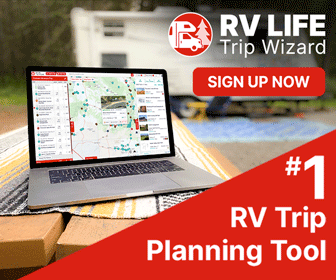
As a Full-Time RV lifer, I have traversed various terrains and locales, basking in the delight and adventure of the open road. However, freedom comes with responsibilities, and prioritizing your safety while on the move should be your topmost concern. In this blog, I will impart my expertise on how to ensure your security while navigating the vastness of the road, making your journey not just memorable but also safe.
3 Key Takeaways:
- Keeping your RV and equipment in optimal condition is fundamental to avoiding mishaps.
- Strategizing and being mindful of potential hazards during travel is crucial to pre-empting accidents.
- Trusting your instincts and adopting necessary measures to safeguard your personal security is of utmost importance.
Safety on the Road:
The first order of business in prioritizing your safety on the road is ensuring your RV is in pristine condition. Regular maintenance checks, including tire pressure and brakes, are instrumental in mitigating avoidable accidents. Additionally, it’s imperative to have spare parts and tools that will prove handy in the event of a breakdown.
It’s equally important to plan your route in advance, with proper research on the areas you’ll be journeying to, to apprise yourself of potential hazards and local regulations. Avoid driving at night or during hazardous weather conditions. Furthermore, when setting up camp, make sure you’ve located a safe and level location and secure your RV to guard against theft.
Always be mindful of potential dangers, such as low bridges or narrow roads. Stay alert when cruising through uncharted areas, and be cautious of other drivers.
Personal security is an invaluable asset. Trust your instincts and adopt necessary measures, such as locking your doors and windows, to ensure your safety. Be wary of strangers and avoid parking in secluded areas. Also, always have a plan for emergencies, such as having a first aid kit and emergency contacts.
Carrying and Using Weapons:
Personal security while on the road is of paramount importance, and some RVers may choose to carry weapons for self-defense. However, it’s essential to bear in mind that laws vary from one state to another, and research must be conducted to avoid running afoul of the law. Before carrying a weapon, take the initiative to research local laws and regulations to ensure your compliance. It’s also advisable to enroll in a self-defense course to equip yourself with the necessary knowledge and techniques to safeguard yourself without using a weapon.
Should you opt to carry a weapon, it’s crucial to undergo proper training on how to use it and comply with safety guidelines. Keep your weapon in a secure location and ensure it’s easily accessible in case of an emergency. Nevertheless, it’s imperative to remember that weapons should be a last resort, and avoiding risky situations is the best way to guarantee your safety.
While firearms are a potential option for some RVers looking to protect themselves, it’s important to note that there are non-lethal alternatives available. Common items, such as tire irons, baseball bats, or pepper spray, can be used for self-defense purposes without the risks associated with firearms. Additionally, bear spray, which is specifically designed to deter large predators, can be a useful tool for RVers who are exploring wildlife areas. These non-lethal options can provide peace of mind and an added layer of security while on the road.
Watch this video from Full Time Freedom! Over 30 Minutes of Safety Talk

Video Cameras:
Deploying video cameras in and around your RV can be a beneficial tool for safeguarding your personal security. Cameras act as a deterrent to potential intruders or burglars, and can also furnish evidence in the event of a break-in or accident.
When selecting a camera system, consider factors such as resolution, storage capacity, and ease of use. A high-quality camera system can be a wise investment in your personal security and well-being.
Letting Someone Know Your Location:
One of the most vital aspects of prioritizing your safety while on the road is ensuring that someone is always apprised of your whereabouts. Before setting out on a trip, inform a trusted friend or family member of your travel plans, encompassing where you plan to park and your expected time of arrival. Such information can be a priceless asset in case of an emergency.
If you’re travelling alone, consider leveraging GPS tracking systems or smartphone apps to share your location with a confidant. It’s also judicious to check in with someone regularly to affirm your location and safety.
Conclusion:
Staying safe on the road should always be forefront of your mind. Prioritizing your safety while on the road requires a blend of proper maintenance, strategic planning, and situational awareness. By embracing these tips and adopting the necessary measures to ensure your security, you can revel in the freedom and adventure that the nomadic lifestyle accords. Remember to always be mindful of local laws and regulations, and trust your instincts when it comes to your personal security. Safe travels!
FAQ:
Q: What should I do if I experience an emergency on the road?
A: Ensure that you have a first aid kit and emergency contacts on hand. If you need immediate assistance, call 911 or the appropriate emergency services.
Q: How frequently should I conduct maintenance checks on my RV?
A: Regular maintenance checks, including tire pressure and brake inspections, should be performed before each trip. It’s also crucial to schedule routine maintenance appointments with a certified technician.
Q: What should I do if I feel unsafe in a particular area?
A: Trust your instincts and take appropriate precautions, such as locking your doors and windows. Consider relocating to a safer location or reaching out to local authorities if necessary.
















Trackbacks/Pingbacks